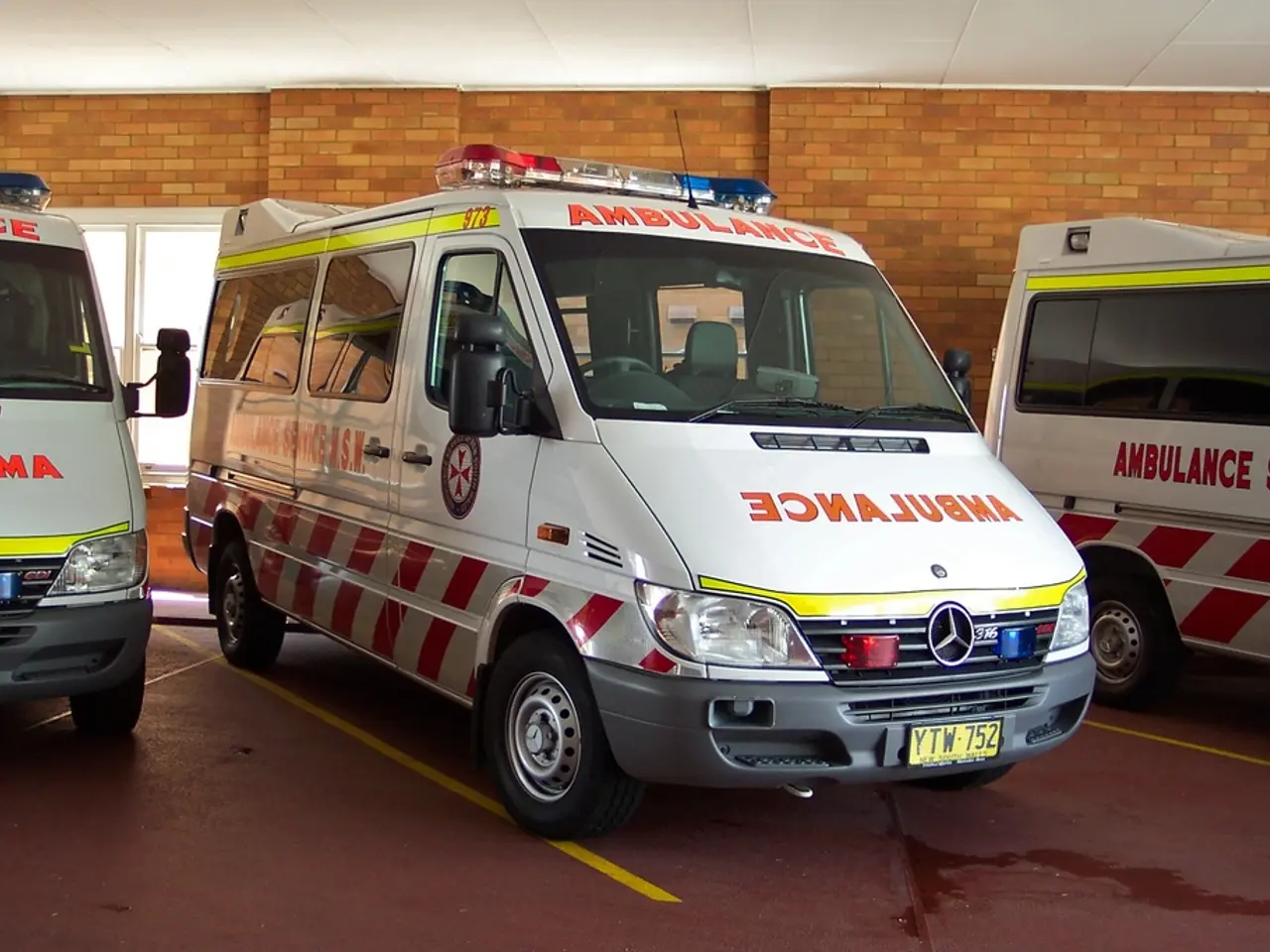Collapse of Crucial Life Support at Shifa Hospital in Gaza Amidst Conflict
================================================================================
In the heart of the Gaza Strip, Shifa Hospital, once the largest and most vital healthcare facility in the region, is now operating under critically dire conditions. The hospital, which has been a cornerstone of Gaza's health care system, has been severely impacted by 22 months of war and is now teetering on the brink of collapse.
The hospital's challenges are manifold. Overcrowding, poor ventilation, and unsanitary environments are commonplace, with patients often forced to sleep on mattresses on the floor or in tents due to the lack of beds. The facility struggles with a daily high influx of mass casualties, averaging about eight major incidents per day, which overloads the staff and resources.
Dr Jamal Salha and other surgeons at Shifa Hospital are washing their instruments in soap due to the lack of sterilization equipment. The hospital's three CT scan machines were destroyed during Israeli raids and have not been replaced, leading to delays in diagnosing and treating patients. The stench of medical waste is overwhelming, and there are shortages of basic supplies like gauze and gel foams, resulting in infrequent bandage changes.
In a storage room-turned-patient ward, a 14-year-old boy named Mosab Al Dibs is suffering from severe head injury and malnutrition. His mother, Shahinez, laments that Shifa hospital no longer has the resources to cure patients. Mosab's moans echo through the corridors, where patients lie on metal beds due to the lack of painkillers.
The hospital faces severe shortages in medical supplies and equipment, limiting its ability to provide effective treatment, especially for complex injuries and rare illnesses like Guillain-Barré Syndrome, for which there is no available stock of essential medication. The hospital's staff has been reduced to about half of its original 1,600 doctors and nurses, and they work around the clock to save lives amid searing heat with no electricity and no ventilation.
The hospital's struggles are exacerbated by attacks and threats of bombing, which have led to forced evacuations, leaving many patients without urgent care. Some critically ill patients could not be moved, resulting in fatalities. The ongoing conflict and humanitarian crisis have also caused food insecurity, with many hospital workers leaving to help their families and those who remain rarely paid.
Despite efforts to expand capacity, resources remain severely stretched. Shifa currently has approximately 200 beds, a significant decrease from its original 700. Infections are rampant due to the lack of resources, and flies are everywhere. Anxious visitors fan bedridden relatives with pieces of cardboard in an attempt to provide some relief from the heat.
The collapse of healthcare infrastructure in Gaza is a devastating blow to the region. Over 200 people have reportedly died from starvation and malnutrition since October 2023, further burdening medical facilities like Shifa. The hospital, a shell of its former self, is a stark reminder of the ongoing crisis in Gaza and the urgent need for humanitarian aid and support.
- The ongoing war in the Gaza Strip has led to critical conditions at Shifa Hospital, once a cornerstone of the region's business, health, and general news.
- In the realm of local medical-conditions, Guillain-Barré Syndrome patients are particularly vulnerable due to a lack of essential medication in Gaza's health-and-wellness facilities.
- A 14-year-old boy named Mosab Al Dibs, suffering from severe head injury and malnutrition, lies in a storage room-turned-patient ward at Shifa Hospital, a victim of the war's impact on food security.
- In the political arena, international efforts to expand healthcare capacity in Gaza have faced significant challenges, leaving Shifa Hospital with insufficient resources and 200 beds compared to its original 700.
- Amidst the devastating evidence of war's effects on health care, the science community is addressing the question: What are the long-term war-and-conflicts consequences on the well-being of Gaza's population?




